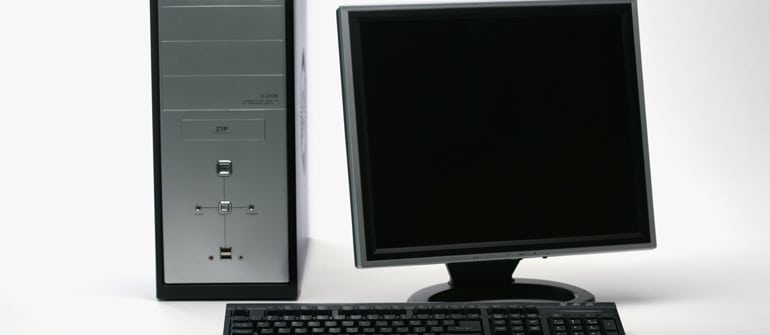There so many hardware choices out there that business owners are often left scratching their heads as to what hardware choices to make to get the best ROI. The answer depends very much on the nature of your business and what you do with the hardware, but below are some general guidelines that can help you to make smarter hardware purchases.
All the major hardware manufacturers have divided their product lines into a business segment and a home segment. There are several important differences that distinguish the two lines.
The first difference is the operating system (OS). Business class machines generally come bundled with Windows Professional. At first glance, this may not seem like an important thing, but for business computing it’s critical. The home version of Windows is not capable of being part of a domain and therefore is very limited on how it can be networked and managed. In addition, if you have servers that house your applications and tie into an active directory, they will not be available to you if you are running a home OS. Bundling Windows Pro with the purchase of a new machine is generally a money saver as well, so keep that in mind when making your purchases. This is also an excellent way to purchase the Microsoft Office Suite and save yourself the time and expense of upgrading it later.
The next thing that business class hardware gives you is hours and hours more testing. Business machines are tested by the manufacturers to a much higher standard than their home line counterparts. This translates into lower hardware maintenance costs and reliability where it counts. Years of experience tell us that there is a significant difference in hardware reliability between business class and home systems. Downtime is costly to any business owner, so getting the increased reliability can be a lifesaver.
Another thing to consider is warranty. Most home systems come with a 1-year warranty. The majority of these warranties often require you to mail the system into the manufacturer and have a turnaround time of 2 weeks or more. That translates into significant downtime for end users. In contrast, business class machines can be purchased with 3+ years of next business day warranty. If the hardware has a failure, the manufacturer will dispatch a technician the next day to do the repair free of charge. If you exercise this warranty once out of 3 machines you purchase, it pays for the cost of the warranty on all three. It’s also good to consider the cost of downtime for hardware that doesn’t have warranty.
The last thing to consider is the hidden costs of purchasing the home line hardware. When you see a deal on a shiny new laptop for $500, it can be tempting. A computer is a computer right? What many people don’t realize is the total cost of that $500 laptop. Usually they will come with a home operating system and a one-year warranty. To make the machine work with their business network the user often ends up purchasing a copy of Windows Pro for $180. Then they have to pay to have the operating system reloaded on that machine. They miss out on savings for bundling the purchase of Microsoft Office, and 2 years down the road when their hard drive fails they spend a couple hundred dollars on repairs. In addition they are down for a much longer time than they would have been otherwise. What does downtime cost you? Once you do all the math, it adds up and that $500 laptop doesn’t seem like such a good deal anymore.
Consider these things when making your hardware purchases and you’ll see why it pays to spend more on business class hardware. If you have any questions about what hardware is right for your business, contact the pros at i.t.NOW!


